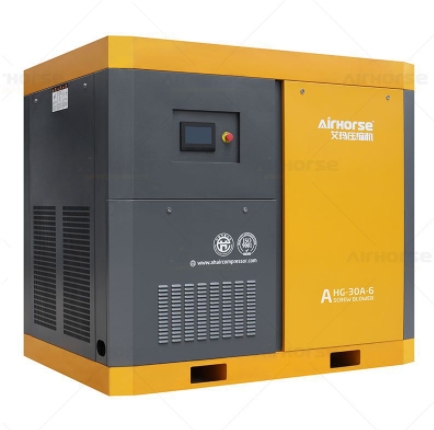What is a low pressure compressor used for?
In the realm of industrial machinery, where efficiency and precision are paramount, low pressure compressors stand as indispensable workhorses. These specialized devices play a pivotal role in numerous industries, providing a steady flow of compressed air or gas at lower pressure levels. From enhancing aeration processes to facilitating controlled material conveyance, the applications of low pressure compressors are diverse and far-reaching. In this article, we delve into the multifaceted world of low pressure compressors, exploring their uses, benefits, and impact across various sectors.
Understanding Low Pressure Compressors
Before we delve into the applications, let's grasp the fundamental concept of low pressure compressors. A low pressure compressor is designed to elevate the pressure of gases or air from the ambient level to a moderate pressure range. Unlike high-pressure counterparts, which operate at significantly higher pressure levels, low pressure compressors focus on delivering consistent and controlled airflow at relatively lower pressures.
Applications of Low Pressure Compressors
1. Aeration in Wastewater Treatment
Efficient wastewater treatment relies on optimal aeration processes, where air is infused into the water to facilitate the growth of beneficial microorganisms that break down organic matter. Low pressure compressors are widely employed in wastewater treatment plants to supply air to aeration basins. The controlled release of air at lower pressures helps maintain the delicate balance of microorganisms and ensures the effective breakdown of pollutants.
2. Pneumatic Conveyance
Industries dealing with granular or powdered materials often require precise conveyance systems. Low pressure compressors power pneumatic conveyors that gently move materials without causing degradation or disrupting their composition. This application is crucial in sectors like food processing, where the integrity of delicate products is paramount.
3. Aeration in Aquaculture
In aquaculture, the health of aquatic organisms depends on the dissolved oxygen levels in water. Low pressure compressors contribute to maintaining optimal oxygen levels by supplying air to aeration systems in fish tanks and ponds. This enhances the growth and well-being of aquatic life, ensuring sustainable aquaculture practices.
4. Ventilation and Air Circulation
Low pressure compressors find utility in ventilation systems for maintaining air quality and circulation in enclosed spaces. They power air curtains in commercial settings, preventing outdoor pollutants from entering indoor spaces. Additionally, these compressors aid in regulating airflow in HVAC systems, ensuring consistent temperature and comfort.
5. Textile Manufacturing
In textile manufacturing, precise control over airflow is vital for processes like yarn spinning and weaving. Low pressure compressors assist in generating controlled air jets that manipulate fibers during these processes. The result is improved efficiency, reduced waste, and higher-quality textile products.
6. Pharmaceutical Industry
The pharmaceutical sector demands stringent standards for product quality and purity. Low pressure compressors contribute to maintaining clean and controlled environments by supplying compressed air for equipment sterilization, pharmaceutical packaging, and lab processes.
Benefits of Low Pressure Compressors
1. Energy Efficiency
Low pressure compressors are designed to operate at lower energy consumption levels compared to their high-pressure counterparts. This not only reduces operational costs but also contributes to a greener and more sustainable approach to industrial processes.
2. Controlled and Consistent Output
Industries requiring precise airflow and pressure levels benefit from the controlled output of low pressure compressors. This ensures that processes such as aeration, material conveyance, and controlled manipulation of materials are carried out with accuracy and reliability.
3. Equipment Longevity
The moderate pressure levels of low pressure compressors often result in less wear and tear on equipment components, leading to prolonged equipment lifespan. This translates to reduced maintenance and replacement costs over time.
4. Versatility
Low pressure compressors are adaptable to a wide range of applications, making them valuable assets in various industries. Their ability to deliver consistent airflow at controlled pressures enhances process efficiency and flexibility.
5. Reduced Noise Levels
Compared to high-pressure systems, low pressure compressors tend to operate at lower noise levels. This is particularly advantageous in industries where noise reduction is essential for maintaining a conducive work environment.
Conclusion
The unassuming yet vital role of low pressure compressors in modern industries is undeniable. From enabling efficient wastewater treatment to enhancing material conveyance and maintaining clean environments in pharmaceutical settings, their impact is pervasive and essential. The benefits of energy efficiency, controlled output, equipment longevity, versatility, and reduced noise levels make low pressure compressors a valuable investment across various sectors. As technology continues to evolve, these compressors are poised to play an increasingly critical role in meeting the diverse and dynamic demands of industrial processes.




